How Do We Feel About Jackée Being the New Betty White?
The “Ground Zero Mosque” scandal of 2011 isn’t going to be aliens. It’s going to be….
Ok Tweeps, if you’d like to see ME host SATURDAY NIGHT LIVE, as 1000s of you have referenced & requested via e-mail… trend #JackéeOnSNLMon Jun 20 19:16:55 via Mobile Web
Jackée Harry
JackeeHarry
… Jackée-related. Oh boy, here we go. JACKÉE’S BACK, BACK AGAIN, TELL A FRIEND.
Hurley Killed Rosie Larsen
Ha ha, remember that time you all watched 13 episodes of “The Killing” and were furious about it?
The 20 Largest American Cities, In Order Of The Last Time They Elected A Democratic Mayor
The 20 Largest American Cities, In Order Of The Last Time They Elected A Democratic Mayor
by Olivia LaVecchia
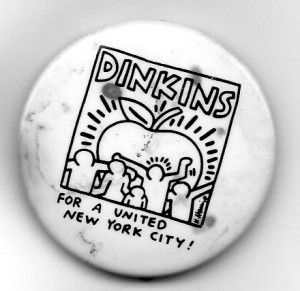
• Dallas: June 18, 2011
• Jacksonville: May 17, 2011
• Chicago: Feb. 22, 2011
• Houston: Dec. 12, 2009
• Charlotte: Nov. 3, 2009
• Memphis: Oct. 15, 2009
• Austin: May 9, 2009
• El Paso: May 9, 2009
• Fort Worth: May 9, 2009
• San Antonio: May 9, 2009
• Detroit: May 5, 2009
• Los Angeles: March 3, 2009
• Columbus: Nov. 6, 2007
• Philadelphia: Nov. 6, 2007
• San Francisco: Nov. 6, 2007
• Phoenix: Sept. 11, 2007
• San Jose: Nov. 7, 2006
• Indianapolis: Nov. 4, 2003
• New York: Nov. 7, 1989
• San Diego: June 7, 1988
Note: Subsequent to the writing of this post the city of Dallas elected a Democratic mayor. Like, over the weekend and stuff. The post has been amended to reflect that.
Olivia LaVecchia is an Awl summer reporter.
The Weather In Scotland Will Be Unpleasant
Sigh. Summer Mondays, this is EXACTLY how you go sometimes. Anyway, stick with this one through the end, it’s worth it. [Via]
When The Bees Swarm: A Q. & A. With Beekeeper Andrew Coté
When The Bees Swarm: A Q. & A. With Beekeeper Andrew Coté
by Russell Brandom
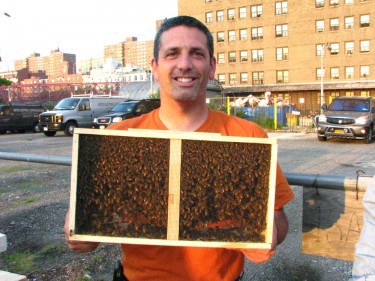
Perhaps you’ve noticed a lot of bee swarms around lately, smothering mailboxes, stopping traffic and entertaining headline writers no less than three times so far this month. As it turns out, it’s bee swarm season — and now that New York is in its second year of legal beekeeping
, the city’s dealing with more restless hives than ever. I tracked down the man who dealt with the recent swarms in Chinatown and Midtown. His name is Andrew Coté, and he’s the president and founder of the New York City Beekeeper’s Association. He tackles the swarms as an unpaid volunteer, armed with a truck, a beekeeper’s suit and a low-suction vacuum.
How did you get involved in last Monday’s swarm?
It came at me from a few different angles. Citizens saw it. People who know about the NYCBA. They contact us through the swarm hotline. When people call and leave a message it sends us a text.
Another way I knew is that a contact at the NYPD called me. And a third way I knew is that I know that that swarm originated in front of 186 Hester St, where it was on a small Gingko tree, and then it disappeared. So I knew they were relocating and it was just a matter of time before they showed up again.
How often does this happen?
Well, this is swarm season. For the last couple of weeks, I don’t think a day has gone by that there hasn’t been a swarm. We’ve had swarms on traffic lights, on the lampposts, fire escapes, trees in front of Bulgari, across the street from Bergdorf Goodman. I’ve been called out to Flatbush Avenue, the Pelham section of the Bronx, Fort Greene, Inwood, the Upper West Side, Upper East Side, and Hester and Elizabeth, which I believe actually came from the same apiary as the one last Monday. In fact, I believe I know whose bees they were, but I want to speak to that person prior to really pointing a finger.
What makes it swarm season?
Millions of years of evolution. Bees need to propogate their species by splitting the hive. Just like when Lucifer left heaven and took a third of the angels with him, so the queen bee takes a third or half of the bees with her when she departs the original hive. That could be compounded by a negligent beekeeper’s laziness in not checking her or his hive for signs of an impending swarm. But I expect that we’ve already peaked and the surge of swarms will be going down now.

Is it happening more than last year, or is that just my imagination?
I think there are more. Last year, when beekeeping became legal, a lot of people got bees, and bees tend not to swarm in their first year. Now this is the second year for many hives in the city, so there’s more of a chance for swarms to split off.
How did you find yourself cleaning up the swarms of New York? Are you a public employee?
I’m unpaid; I’m a volunteer. A couple years ago, the Department of Health and Mental Hygiene asked the NYCBA and me specifically to sit in while they were going over the possibility of making beekeeping legal. I would come into the city, attend meetings, offer advice and criticism. Since then, it’s all on a volunteer basis. I don’t get any sort of compensation, even for transportation.
Why do you do it?
I think that as one of the founders of the NYCBA, there’s a responsibility to keep a positive face on urban beekeeping, and sometimes that means helping out a little. Plus, I’m a New Yorker. I live on the Lower East Side. I care about the city. I love the city.
What do you do with the swarms after you catch them?
The rule is, whoever catches the swarm keeps the swarm. No one can come running up and say, those are my bees, they ran away. That’s just too bad. If they had taken care of their bees, their bees wouldn’t have swarmed. Whoever catches the swarm keeps the swarm. Sometimes that’s me; sometimes that’s another beekeeper I’m working with on that day, or someone else entirely.
How much of a threat do these swarms pose to people?
Zero. Think of a dog. If you kick the dog, the dog may become a threat whereas otherwise the dog would have been docile. Bees are at their most docile when they swarm. They leave the hive full of food, almost bloated, and they have no hive to defend at that point. I would think that if someone would go past a swarm of bees that the person would be intrigued or even frightened. But if they would just call our hotline, someone would be grateful to have the chance to take that swarm safely and quickly away.
Russell Brandom is worried he will be stung to death by bees.
Learn All About the Cost of Wrongful Convictions!
Learn All About the Cost of Wrongful Convictions!
“Wrongful convictions of men and women for violent crimes in Illinois have cost taxpayers $214 million and have imprisoned innocent people for 926 years.”
— And most of that price tag is the cost of settlements. And: “government error and misconduct appeared in 81 out of the 85 cases.”
The New American Workplace Sucks (For a Reason)
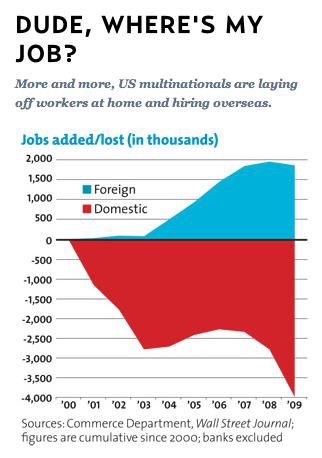
Up in the corner offices, there’s a growing recognition that unrealistic demands on time are destroying the souls of… executives. “Always-on, multitasking work environments are killing productivity, dampening creativity, and making us unhappy,” notes a recent article in McKinsey Quarterly, the research publication of the giant global consulting firm that has been corporate America’s chief efficiency cheerleader. “These scourges hit CEOs and their colleagues in the C-suite particularly hard.” McKinsey’s advice to beleaguered execs? Do one thing at a time; delegate; take more breaks.
Just try telling that to the millions of people whose work has been downsized, offshored, and sped up thanks to McKinsey.
Duane Reade's Progressively More Scary Obama Birthday Cards
by Myles Tanzer
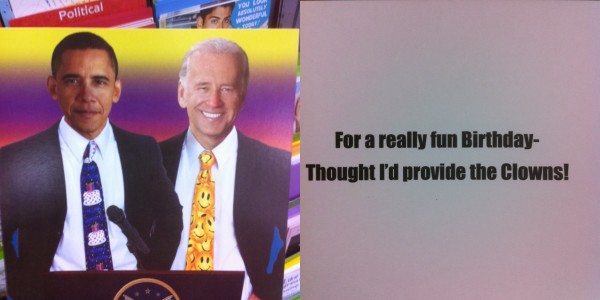
Duane Reade — a subsidiary of Walgreens! — carries fine American mass-market cards for every occasion, from “I’m sorry I don’t love you enough” to “You should probably get checked out at the clinic” to “happy graduation, foster son of my lesbian partner.”
They also carry a diverse line of Barack Obama birthday cards, which range from adulatory to scare-mongering. Here’s pics of the front of the card and their inside panel.
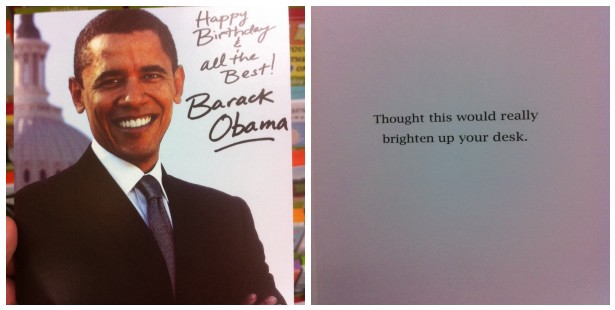


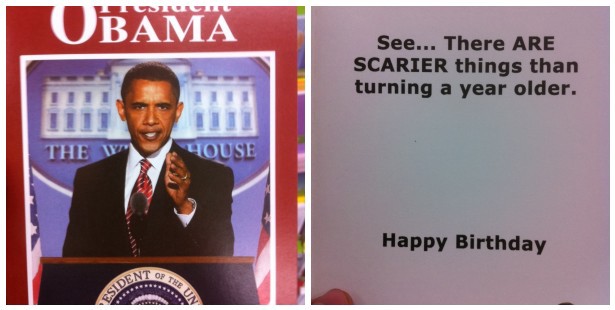
We did not nab the name of the manufacturer but it’s nice to see that American enterprise isn’t taking sides on the “Obama is awesome”/”Obama is the devil” debate.
Was David Mamet Ever Really A Liberal Anyway?
Was David Mamet Ever Really A Liberal Anyway?
by Jordan Michael Smith
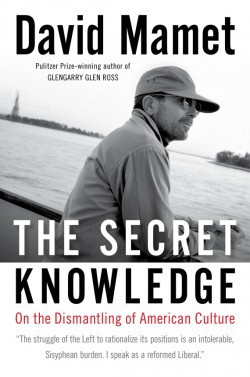
After David Mamet trumpeted his switch to Republican Party politics in 2008, there were some who claimed that he’d been a conservative all along. Shelby Steele, an author of right-wing books on race and a fellow at the Hoover Institution who talked with the playwright frequently during his “conversion,” said he detected early conservative leanings in Mamet’s previous works. “I think he has the same values today that he did before,” Steele told a reporter. “He’s said to me he thinks he might have always been conservative without knowing it. All that happened was, he finally found a politics that suited his values.”
Steele doesn’t appear to have looked at Mamet’s plays and scripts. Reading them inspires just the opposite conclusion: Mamet’s writing has generally been strongly characterized by its hostility to capitalism, skepticism about traditional American institutions such as the court system and the presidency, and its general countercultural ideas. Mamet’s career doesn’t suggest a traditional conservative mindset devoted to business, patriotism and the family, but it doesn’t suggest a liberal worldview oriented towards social justice, either. Rather, looking at the many plays and screenplays that comprise the Mamet catalog points to a perspective that is merely anti-establishment, categorized by an individual-against-the-system viewpoint reflective of the ’60s New Left.
***
Mamet abandoned the left for one reason above all — its increasing disenchantment with Israel. But in his writings about his political conversion, which culminate with his new book The Secret Knowledge, he makes clear that he never really embraced or even understood mainstream American liberalism. Indeed, he mistakes ideas and themes common to the New Left as politics central to the Democratic Party, a conflation that is dead wrong. This conflation is familiar, however. For Mamet follows in a long line of individuals who departed from the far-left camp for the right-wing without having spent any time at all in what the liberal historian Arthur Schlesinger, Jr. called “The Vital Center.”
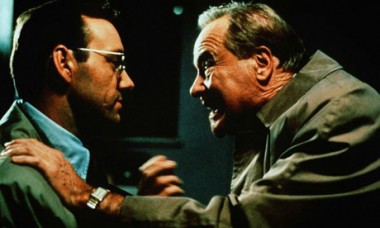
Start with Glengarry Glen Ross, Mamet’s best play and film script. The story of four distressed real estate agents, it’s among the most cynical, anti-capitalist popular works of art in 20th-century America. The film’s chief character, Shelley Levene, is a hard-working but desperate man forced by a greedy employer to attempt a robbery or be fired (in the film, unlike in the play, Levene has a sick daughter who presumably needs financial care). Even worse, the ploy goes badly, with Levene having sold his soul for a scheme that still did not save him. The entire system genuinely is rigged against him; given impossible “leads,” he nonetheless must pursue them to maintain his job. For all the sympathy Levene’s sad circumstances elicit, he himself is so deeply compromised he’s hardly a man worth rooting for. Robbery aside, Levene brags of snookering two clients into buying real estate like a teenaged boy fresh from his first sexual conquest. His berating of his superior, Williamson, suggests that were he in the position of power, he’d be treating his employees no better than do his faceless employers. And, of course, the very act of selling real estate is profoundly distasteful — few transactions can demonstrate the amorality of capitalism more than profiting from the sale of land. Not for nothing did the actors refer to it as “Death of a Fuckin’ Salesman” during filming.
Even Mamet’s more heartwarming stories tell of the brutal consequences of greed. 1987’s The Untouchables exposes the evils of Al Capone’s liquor-fueled gangsters, even as it points to the pointlessness of America’s prohibition ban. In The Verdict, Paul Newman plays an anti-hero who nevertheless exposes the corruption of hospital and religious officials conspiring to cover up their wrong doings. Whatever this is, it is not an affirmation of conservative family values and respect for traditional institutions.
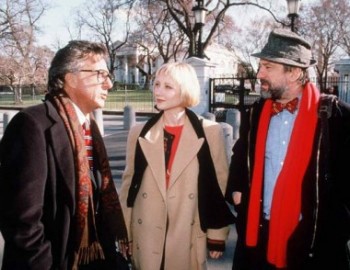
1997’s Wag the Dog, also written by Mamet, contains the same cynical charge against the American system, only this time it’s not politics but economics that stands indicted. Released just after President Bill Clinton launched strikes against Iraq after (but in fact unrelated to) the revelations that he had relations with intern Monica Lewinsky, the film (the screenplay for which Mamet won an Oscar) tells the story of a president who launches a pointless war against Albania to distract attention from his sexual indiscretions, the fictional skirmishes all choreographed by a Hollywood producer. The president is successfully reelected, and the producer is murdered after he threatens to reveal the phoniness behind the war.
***
Mamet’s early associations and inspirations were wildly left-wing. “As a youth I enjoyed — indeed, like most of my contemporaries, revered — the agitprop plays of Brecht, and his indictments of Capitalism,” he writes in The Secret Knowledge. Bertolt Brecht, of course, was a lifelong Marxist who even initially supported the East German’s suppression of the 1953 Uprising, the first anti-Communist revolt in the Soviet sphere. Glengarry Glen Ross is dedicated to the late Nobel Prize-winning playwright Harold Pinter, who compared the United States to Nazi Germany and was patron of the International Committee to Defend Slobodan Milosevic. These men spent their entire lives railing and writing against the American right wing.
None of this is to say that Mamet doesn’t also draw on themes popular in American art. He does, but they’re hardly the ones associated with contemporary conservatism. His indictments of capitalism can be seen as rooted in the ideas of the Populists and Progressives who were powerful from the 1890s to the 1920s, with leaders like William Jennings Bryan and Teddy Roosevelt, who were deeply distrustful of economic laissez-faire ideas. What observers like Shelby Steele seem to be identifying as conservative in Mamet’s work are notions of the value of the individual fighting against a corrupt system, whether the lawyer in The Verdict or Eliot Ness in The Untouchables. In Mamet’s world, Levene’s efforts to redeem the world (or even just his life) are futile. Mamet characters seem to live the life sung by Leonard Cohen’s valentine to cynicism, “Everybody Knows,” where “Everybody Knows the War is Over/Everybody Knows the Good Guys Lost.” There is a sort of populist rage-against-the-machine mentality that permeates Mamet’s work, not to mention the dim view of human nature. But to label these themes as conservative is to ignore conservatism’s intellectual and political traditions, which are deeply hostile to the nihilism that pervades in Mametworld.
But to read Mamet’s work for its politics suggests a level of ideological sophistication that isn’t really there. “I never questioned my tribal assumption was bad,” he now writes of his early anti-business plays, such as American Buffalo and The Water Engine. While there was a strong hostility to American ideals in them, the hostility didn’t stem from any real study. In The Secret Knowledge, Mamet shows little awareness of the long history of American liberalism and left-wing thought, from Herbert Croly through Paul Krugman. The first left-wing figures mentioned in Mamet’s new book besides Brecht are Marx and Engels, who are only relevant figures to Barack Obama and The New York Times if you’re Glenn Beck.
Perhaps as a result of his superficiality, Mamet was able to experience a “revelation” when he read the Austrian economist Friedrich Hayek’s book, The Road to Serfdom. A libertarian case against the central planning, Mamet writes that, after ingesting the book’s ideas, “I began to see it everywhere.” Another major influence was the work of Thomas Sowell, also a conservative economist. Sowell’s work maintains that liberals hold a more optimistic view of human nature than do conservatives, for whom life is a tragic series of trade-offs.
***
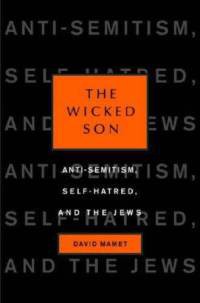
There seems to be at least one more source of Mamet’s conversion. “[A[nyone familiar with his earlier writings about Israel, Judaism, and the Middle East is likely to detect a chain of causality,” Commentary writes. Indeed, in February 2002, Mamet wrote an essay for the prominent New York-based Jewish publication, The Forward, that marked his first entrance into overt political debate. “Much contemporary opinion in the West is anti-Semitic,” Mamet declared flatly. For Mamet, the criticism (far more pronounced in Western Europe than in the United States) of Israel’s behavior towards the Palestinians in the wake of the 2000 intifada was nothing short of Jew-hatred. He visited Israel and fell in love with the country, experiencing deep guilt for not joining the Jewish state in its battles. “Here, in Israel, are actual Jews, fighting for their country, against both terror and misthought public opinion, as well as disgracefully biased and, indeed, fraudulent reporting,” Mamet wrote. “Why has the Western press embraced antisemitism as the new black?”
It was Israel, not economics, which inspired his political migration. Mamet had tackled themes of Jewishness in his 1991 film Homicide, but his most sustained meditation was 2006’s The Wicked Son: Anti-Semitism, Jewish Self-Hatred and the Jews, a book that, as its title suggests, castigates Jews who are at all critical of Israeli conduct, charging them with “race treason.” Around the same time the book was released, Mamet began writing cartoons for Huffington Post, many of which dealt with anti-Semitism. “The world hates the Jews,” Mamet writes in The Wicked Son. “The world always has and will continue to do so.” Though bracing and direct, Mamet’s passion overwhelmed his analysis. As an otherwise favorable review in the New York Times put it, “Not all Jewish criticism of Israel is self-hatred, and not all gentile criticism is anti-Semitic.” The New Republic declared the book “thuggish.”
***
And so, within a few years, Mamet publicly announced he had abandoned the left. First step was that Village Voice essay entitled “Why I Am No Longer a Brain-Dead Liberal”: “As a child of the ’60s, I accepted as an article of faith that government is corrupt, that business is exploitative, and that people are generally good at heart.” Next was a play that extolled the virtues of the free market. And now Mamet emerges with The Secret Knowledge, a book that rails against academia (which Mamet says brainwashes youth into liberalism), feminism and the breakdown of the family, and denies global warming.
In short, Mamet is the latest neoconservative. The term refers not just to those who embrace right-wing politics late in life, but to a specific set of Jewish writers who were not liberals but radicals — and who embraced right-wing politics late in life often because of the left’s post-1967 criticisms of Israel. Writes Jacob Heilbrunn, in his book They Knew They Were Right: The Rise of the Neocons: “[N]eoconservatism isn’t about ideology. It isn’t about the left. It is about a mindset, one that has been decisively shaped by the Jewish immigrant experience, by the Holocaust, and by the twentieth-century struggle against totalitarianism.” Mamet is very much in this tradition, and his brash prose and attacks on liberal Jews recall nobody so much as Norman Podhoretz, longtime editor of Commentary.
Just as Podhoretz and peers like Irving Kristol never in fact were liberals, but instead stood on the far Left of the political spectrum before their evolution, so too did Mamet’s politics have its roots in the New Left of the ’60s, a movement that emerged in opposition to contemporary American liberalism. Indeed, such political leapfrogging has a rich heritage, beginning, perhaps, with Whittaker Chambers’ book Witness, the mid-century autobiography of an ex-Communist.
A few years ago, a number of conservatives joined up and released an essay collection on their conversion stories, Why I Turned Right: Leading Baby Boom Conservatives Chronicle Their Political Journey. Jonathan Chait of The New Republic observed, “Of the essays that do describe genuine left-to-right conversions, the striking thing about them is that encounters with actual liberalism are virtually absent.” The essayists rarely were motivated by the failings of genuine liberalism — rather, they disliked radicals or were disgusted at some extremist politics, and mistook them for the ideas of the Democratic Party. Mamet seldom mentions liberal programs or Democratic ideas he opposes; for him, the general mentality of “The Left” has prompted his conversion. He declares the evident failings of “feminism, birth control, ‘diversity,’ free love, and the profusion of ‘counter-cultural innovations spawned in the 1960s.’” But modern American liberalism traces to long before the ’60s, and whatever their power, it’s fair to say that notions of ‘free love’ never found their way onto a platform of the Democrats. Like his predecessors, Mamet has confused radicalism with liberalism. The two are not just slightly different but hostile; just ask any campus Marxist about his thoughts on Democratic icon Lyndon Johnson, who defined his foreign policy by killing hundreds of thousands of Vietnamese Communists.
But should Mamet’s work suffer, should his writing edge be blunted in some form, it will not be possible to blame the devolution on liberals. Mamet was never one to begin with. Perhaps that’s what made him such a great artist.
Jordan Michael Smith, a writer in Washington, D.C., has written for the New York Times, Boston Globe, Slate, Salon and The Atlantic.
